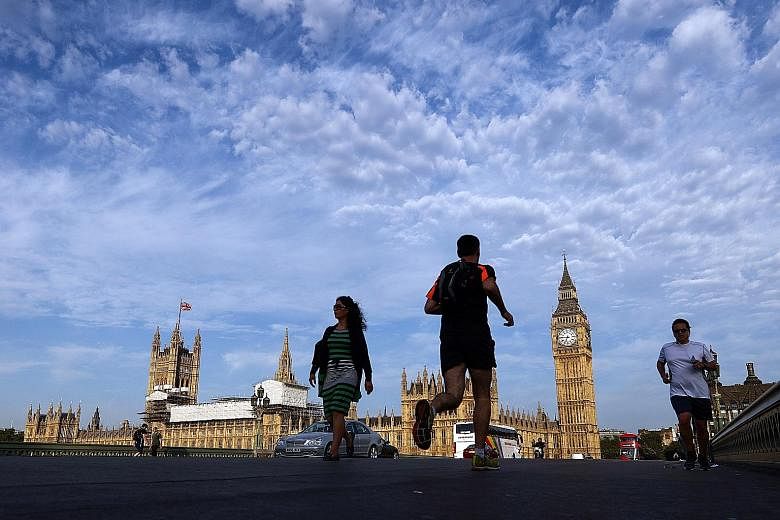PARIS • More than 1.4 billion adults are putting themselves at heightened risk of deadly diseases by not getting enough exercise, doctors are warning, with global activity levels virtually unchanged in nearly two decades.
With richer nations enjoying an increasingly comfortable, sedentary lifestyle, a study by the World Health Organisation (WHO) said a third of women and a quarter of men worldwide are in the firing line for killer conditions such as heart disease, diabetes and cancer unless they increase their physical activity.
"Insufficient physical activity is a leading risk factor for non-communicable diseases, and has a negative effect on mental health and quality of life," said the study of world exercise levels published yesterday by The Lancet Global Health Journal.
The WHO recommends each adult do at least 150 minutes moderate-intensity exercise - such as brisk walking, swimming or gentle cycling - each week, or 75 minutes of vigorous-intensity activity - such as running or team sports.
The study tracked activity levels of 1.9 million people in 168 countries across the world in 2016.
Researchers found there had been no improvement in physical activity levels since 2001, despite numerous public health initiatives extolling the benefits of exercise.
More than a quarter of the world's adults were insufficiently active, according to the data.
"We definitely haven't done enough" to encourage people to exercise, the WHO's Dr Regina Guthold, lead study author, told Agence France-Presse. "We have seen basically no progress."
The study's authors highlighted several worrying trends, including a stark divide in exercise rates between poor and rich nations, and between men and women. Levels of insufficient activity to guard off non-communicable killers, including dementia and cardiovascular diseases, are more than twice as high in high-income countries compared with developing nations.
Dr Guthold said the link between the lifestyle in wealthier nations - more time indoors, longer office hours, more easily accessible high-calorie foods - and lower exercise levels was part of a "clear pattern" of poorer health coming with urbanisation.
"As countries urbanise, people who used to be, say, farmers, and got a lot of physical activity through their work all of a sudden live in an urban environment where they might be without work or move to a sedentary job, so societies need to compensate," she said.
In four countries - Kuwait, American Samoa, Saudi Arabia and Iraq - more than half of adults were classified as insufficiently active.
In Kuwait, where temperatures regularly top 45 deg C, a whopping two-thirds (67 per cent) of adults were not exercising enough.
Women still lag behind men in nearly every region of the world, with the gender-exercise gap highest in Bangladesh, Eritrea, India, Iraq and the Philippines, the study found. "Women are often expected to be at home, take care of the children, manage the household and so sometimes don't always have time to exercise," said Dr Guthold.
AGENCE FRANCE-PRESSE

